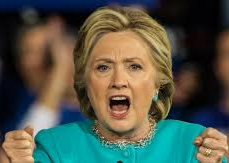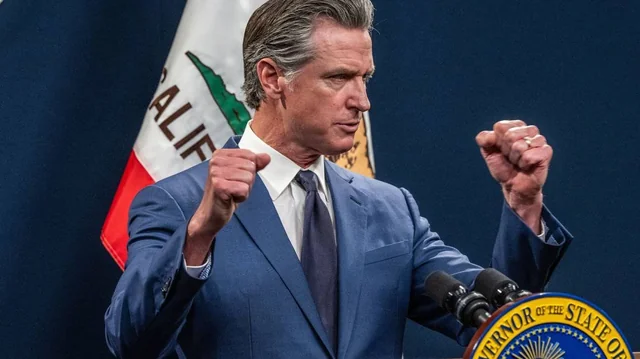The First Amendment of the United States Constitution states the following:
"Congress shall make no law respecting an establishment of religion, or prohibiting the free exercise thereof; or abridging the freedom of speech, or of the press; or the right of the people peaceably to assemble and to petition the government for a redress of grievances."
The wording could not be clearer: Congress has no authority to regulate speech. But they have been doing so since the Constitution was ratified. John Adams signed the Alien and Sedition Acts into law in 1798, the latter prohibiting criticism of Congress or the President. This legislation arose when tensions were escalating between the United States and France. The Acts were deemed so repugnant by the Democratic-Republican party that James Madison and Thomas Jefferson drafted the Virgina and Kentucky Resolutions, respectively.
They argued correctly that the general government did not have the authority to pass such laws, and Jefferson stated that the sovereign and independent states, in creating the Constitution, had the right to judge its violation. Further, nullification of such laws would be the rightful remedy. The Federalist Party lost the election and Thomas Jefferson became the next President. The Acts were repealed in 1802.
One would think this costly experiment would be the end of such shenanigans, but as we explained in a recent podcast, it was just the beginning. In June of 1917, shortly after the United States entered the first world war, Congress passed the Espionage Act, which prohibited actions intended to interfere with the war effort. A conviction arising from this act came before the United States Supreme court in 1919. This landmark case was Schenck v. The United States.
Charles Schenck, a socialist, was convicted of distributing flyers to men eligible for conscription, urging them to resist the draft. He correctly explained that involuntary servitude was prohibited by the Thirteenth Amendment. Schenck appealed his conviction, arguing that the First Amendment prohibited Congress from enacting such a law, as it amounted to an abridgment of free speech. The Court upheld the conviction, stating that the circumstances had to be taken into consideration. They held that the flyers were an attempt to interfere with the draft and created a "clear and present danger" of bringing about evils Congress had a right to prevent. Justice Holmes used the war as an excuse to punish what would in other times be considered free speech when he stated the following:
"When a nation is at war, many things that might be said in time of peace are such a hindrance to its effort that their utterance will not be endured...and that no Court could regard them as protected by any constitutional right."
Here are my two main takeaways from this case: first, the Court declared free speech under the First Amendment to be a "right." In reality, the First Amendment prohibits Congress from regulating speech. By choosing to ignore this restraint, the Judiciary granted itself the authority to regulate natural rights by labeling them "constitutional rights." the proper ruling would have been stated as follows: The Court finds this conviction violates the Free Speech Clause of the First Amendment. Reversed." End of story.
The Court created a reason to justify the conviction and later went on to rule other types of speech restrictions acceptable; commercial speech, hate speech and "misinformation," are but a few examples. Why is this accepted? Because it is palatable to do so. It's unpatriotic to hamper the war effort. It is dangerous to shout "fire" in a crowded theater. Commercial speech is regulated to protect consumers. "Hate speech" and "misinformation" have opened up a Pandora's Box of censorship, a popular mechanism to silence opposition. When government regulates moral relativism based on emotions, freedom loses, and truth is suppressed when it does not support the official narrative.
This will not be the first time we hear the theory that "rights are subject to regulation." Second, war was the excuse to ratchet up power and restrictions over the people. Once wars end, there is never a loosening up of these restrictions; freedoms taken away do not return to the people.
A far more nefarious case was handed down by the Court in 1925. In Gitlow v. New York, Benjamin Gitlow's conviction for violating New York's Criminal Anarchy Law was up for review. He had distributed a manifesto that advocated socialism, and even though no violence had resulted from his words, the High Court upheld his conviction, claiming New York could prohibit speech advocating violent overthrow of the government. Justice Holmes, in his dissent, stated that the manifesto presented no immediate danger. Again, the Court qualified rights and ignored restrictions upon the general government. This time, state laws were upheld, and according to principles of Originalism, the Court had no authority to even hear this case. Under Gitlow, the ultimate affront to state sovereignty, The Incorporation Doctrine, arose. How did this happen?
Here the United States Supreme Court magically “found” the authority to apply the Bill of Rights against the States supposedly hidden away in the Fourteenth Amendment. This creation of law by the Court is both problematic and unsupported by historical records. The amendment was proposed by the 39th Congress, who did not intend such an application. However, by this time, the Progressive era was in full swing, and the Supreme Court was on a mission to rewrite the Constitution, diminishing the “separation of powers” between the states and the general government. The system created was “federal” and not “national” in nature, meaning the states were to work in unison with, and not be subservient to the general government. The incorporation of the Bill of Rights was made up and has been the chief mechanism through with a “one-size-fits-all” form of government, with all rights and powers emanating from Washington, D.C., has arisen. Please read my book, Federalism: How Decentralization Can Save America, for a more thorough discussion on this topic.
Holmes was critical of the opinion in Gitlow, as he felt the conviction amounted to what we could consider today as thought crime, or punishment for political opinion. That takes us to where we are today. Early on, no one took exception to the Court qualifying rights. The opinion in Schenck should have read as follows: "We hold that the law under which Petitioner has been convicted violates the First Amendment. Reversed." End of story.
Recently, Hillary Clinton told Rachel Maddow that Americans who share "political misinformation," even unknowingly, should face civil and/or criminal penalties. The first question this raises, is who gets to determine what "misinformation" is. No one knows more about the obfuscation of truth than Hillary Clinton, yet the lapdog media never challenged this statement.
Jim Bovard had the following to say in a recent article. "Hillary's scams were even too much for federal scorekeepers: The Federal Election Commission in 2022 levied a $113,000 fine on her 2016 campaign and the Democratic National Committee for their deceptive FEC filings that covered up their role in manufacturing the Steele dossier, which spurred the FBI's illegal surveillance of Trump campaign officials." Speaking of threats to democracy...
Vice-Presidential candidate Tim Walz told a reporter, "There's no guarantee to free speech on misinformation or hate speech..." Referring to the opposition as "election deniers, anti-vaxxers, Russian collusionists" is intended to silence opposition. If that fails, they pressure platforms to censor critics and threaten legal consequences for speaking against the official narrative. Elon Musk is under fire after sharing AI-generated videos using the voices of Presidential candidate Kamala Harris and California Gavin Newsom (factually) describing their failures. Because the politicians never said these words, the media is outraged, claiming clearly satirical videos are a "threat to democracy," the current mantra of the DNC.
Brazil recently banned Musk's platform X. The EU has threatened him as well; if they issued an arrest warrant, I have no doubt there would be calls to extradite him, and the current administration would be happy to comply. What's to stop the United States or other governments from enticing sovereign nations to ban a platform? Censorship and the curtailment of expression is not just a problem here, it is a global issue, and the egregious violations we are seeing in the EU (English citizens being arrested for sharing videos of riots) will soon be coming to a neighborhood near you.
Freedom of expression promotes robust debate across multiple forums and platforms. In a free and open society, the best ideas should rise to the top, and people can make informed decisions about their lives, communities and elected representatives. If a theory is false, then open discussion will prove it as such. Censorship, penalties and threats instill distrust. A fearful and distrusting society is easily controlled. In seeking to silence opposition, be very careful what you wish for.
As Elon Musk said, "If we lose the freedom of speech, it's never coming back."




Good article. Nice to hear from you. Feel free to send me anything at anytime!! I will pass it on.
😃
Thank you Suzanne wonderful article will pass it on to Michele. Keep up the good work. Love you